Finding Relief from Tinnitus at Night

Has your tinnitus been keeping you up at night? Few things are more frustrating than missing out on a full night’s sleep, and if the ringing in your ears is the culprit behind your sleeplessness, then it’s even more aggravating. Let’s discuss some strategies to lessen your tinnitus at night so you can get the…
The Different Types of Hearing Loss and What They Mean for Your Treatment Options

Hearing loss is a complex health condition, and it’s different for everyone. At the same time, it’s relatively common; approximately 15% of all American adults over age 18 have some trouble with hearing. While everyone experiences hearing loss slightly differently, it can be grouped into three main categories: conductive hearing loss, sensorineural hearing loss and…
Elevate Audiology Announces Greenville Location
We are thrilled to share a BIG announcement: Elevate Audiology is opening a second location in Greenville, SC! This expansion allows us to better serve our current patients who live, work or travel through Greenville, and it provides even more convenient access to care as we continue adding new and advanced services such as auditory…
What It Means When Your Hearing Aids Sound “Tinny”

Adjusting to new hearing aids can be a long process as you relearn sounds that you’d forgotten about. You may notice that they sound different from how you remember. People commonly use the words “metallic” or “tinny” to describe this sound quality. So, what does “tinny” mean, and what does it mean for your hearing?…
How to Tell It’s Time for a Hearing Aid Upgrade

Just like your phone or your laptop, hearing aids don’t last forever and will eventually need an upgrade. Here are some signs to look for that may indicate it’s time for a new set. Wear and Tear On average, hearing aid users upgrade their set every three to five years. A significant reason for this…
Sharpen Your Hearing and Listening through Audiobooks

Audiobooks are becoming increasingly popular as a means to read your favorite books on the go; it’s easy and convenient to listen while driving or doing chores around the house. Audiobooks enable you to enjoy literature whenever and wherever, without needing to sit down and read. What’s more, they can also be very useful as…
How to Troubleshoot Common Hearing Aid Problems

If you’re a hearing aid user, you know that hearing aids significantly improve, not just your hearing, but your quality of life as well. You also know that sometimes your hearing aids are uncomfortable or don’t transmit sound like they should. These are common problems, and often you can solve them on your own. Let’s…
What to Know About Pulsatile Tinnitus

You’ve probably heard of tinnitus: a constant ringing, buzzing or whooshing sound in the ear with no physical source. It’s a common condition; it’s estimated that over 50 million Americans suffer from or have suffered from tinnitus. Pulsatile tinnitus is also characterized by sounds in the ear, but it is much rarer, and it isn’t…
The Link Between Tinnitus and Ototoxic Drugs

Tinnitus, often described as ringing or buzzing in the ears, can affect daily life and well-being. Ototoxic drugs can cause or worsen tinnitus by damaging the inner ear. can help you understand how this happens and how you can protect your hearing. How Ototoxic Drugs Cause Tinnitus Ototoxic drugs can harm the inner ear, specifically…
Can Thyroid Disorders Impact Hearing?
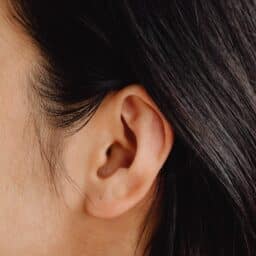
Thyroid disorders are known to affect a variety of bodily functions, including the auditory system. Understanding this connection is essential for timely diagnosis and effective management of hearing-related issues in individuals with thyroid conditions. Your Thyroid and Hearing The thyroid gland plays a critical role in regulating metabolism, energy production, and the development of various…
Can Dehydration Affect Your Hearing
Hydration is important for overall well-being. But one lesser-known effect of dehydration is how it impacts your hearing. It’s essential for energy, temperature regulation and brain performance. Additionally, your ears, like the rest of your body, depend on adequate hydration to function properly. Understanding this connection can help you take better care of both your…
How Do I Know if I Need a Hearing Test?
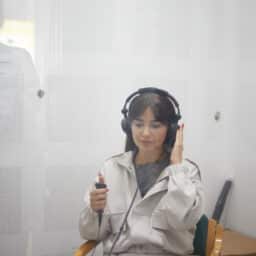
Hearing loss is common, with 15% of Americans reporting some trouble hearing. It can be subtle and gradual, making it difficult to notice at first. Often, people become more aware of hearing loss when family members tell them they should get their hearing checked. Paying attention to the early signs can help you act before…
The Different Types of Auditory Processing Disorder

Auditory Processing Disorder (APD) affects the way the brain processes sounds. People with APD can hear but have difficulty understanding auditory information. APD is caused by something affecting the part of the brain that processes sound. There are five different types of APD, each affecting listening and comprehension in unique ways. The five types include:…
Navigating the Emotional Journey of Hearing Loss

Approximately 15% of U.S. adults have hearing loss. If you or a loved one is processing a new hearing loss diagnosis, it’s helpful to recognize the five common emotional stages people go through on their journey to acceptance and treatment. Let’s take a look at these five stages and how you can manage them. 1….
How Does Stress Impact My Tinnitus?

Tinnitus is the presence of a sound in the ears that has no external source. Although the type of sound may differ from person to person, it’s usually described as a ringing or buzzing. Not a condition itself, tinnitus is a symptom of other medical conditions, including but not limited to age and noise-related hearing…
Tips To Get the Most Out of Your Hearing Aids This Holiday Season

Holiday parties are a fun way to relax at the end of the year. Whether you’re attending a huge holiday work party or joining friends for a few celebratory drinks at Steddy’s, you might be wondering how you can best manage your hearing loss for easier communication. Let’s take a look at a few ways…
Thriving at Thanksgiving: Communication Tips for Everyone

The air is crisp, the leaves are falling and Thanksgiving is right around the corner. It’s a time for gathering, gratitude and a lot of conversation. These lively gatherings can sometimes feel more exhausting than fun for those navigating hearing loss, but they don’t need to. With a few simple communication strategies, you can embrace…
How to Advocate for Yourself in Medical Settings with Hearing Loss
Approximately 48 million Americans live with hearing loss, and for those people, visiting a doctor can bring challenges. The potential for miscommunication is higher, and that can make it harder to receive the right care. Being proactive and advocating for yourself is key to ensuring you get the treatment you need. Here are four ways…
How Can AI Captioning Software Make My Life With Hearing Loss Easier?

Imagine trying to follow a conversation, but background noise or multiple speakers make it impossible to catch every word. This challenge is a daily reality for the 20% of people living with hearing loss globally. AI-captioning software offers a solution by instantly converting spoken words into readable text, creating an inclusive environment for everyone, regardless…
Can Eating Healthy Prevent Hearing Loss?
We all know that eating a healthy diet full of fruits and vegetables is good for us. However, what you might not know is that it may also lower your risk of hearing loss. How a Healthy Diet Benefits Your Hearing As we age, our risk of hearing loss increases. There are numerous reasons for…
How To Address Hearing Aid Non-Use
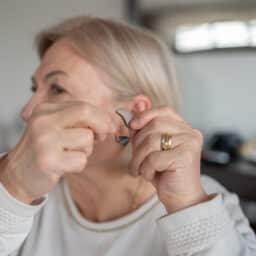
Approximately 28.8 million U.S. adults could benefit from hearing aids. These small but powerful devices pick up and amplify essential speech and background noise to keep the wearer alert and ease communication stress. With all their benefits, it may surprise you to learn that only 16% of people aged 20 to 69 who need hearing…
How Does Inner Ear Damage Affect Hearing?
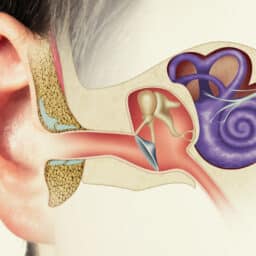
The auditory system is a complex structure working tirelessly to bring sounds like chirping birds or steaming milk at Southern Fuel Coffee to your brain. When one part of the system breaks down, hearing loss can arise. Let’s look at the inner ear’s anatomy and how damage inside it can lead to hearing loss. The…
How Does Diabetes Affect Your Hearing?
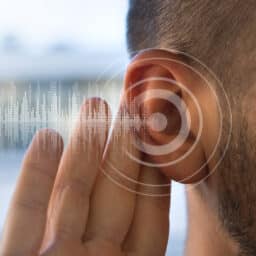
Diabetes, a chronic condition affecting blood sugar processing, can impact various bodily systems, including hearing, when not properly managed. Learn about the connection between the two here. The Connection Between Diabetes and Hearing Loss The inner ear’s blood vessels are particularly sensitive to blood flow. Diabetes-induced poor circulation and high blood sugar levels can inflict…
Active Listening Strategies for People with Hearing Loss

Active listening is technique for fully engaging in and understanding conversations. For individuals with hearing loss, it’s especially beneficial as it can help bridge gaps in communication that may arise from things you missed hearing. Approximately 20% of people worldwide deal with some form of hearing loss, making these techniques relevant and necessary. Techniques to…
What To Know About Tinnitus Counseling?
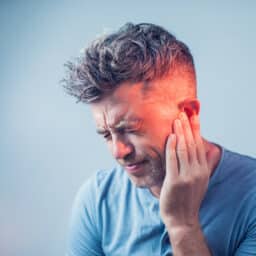
Tinnitus is the presence of ringing or buzzing sounds when no physical sound is present. There is no cure for tinnitus, but some evidence suggests forms of therapy can assist with the management of symptoms. One such therapy, endorsed by the American Academy of Audiology and the American Speech-Language-Hearing Association, is Cognitive Behavioral Therapy, or…
Is My Hearing Loss Temporary or Permanent?
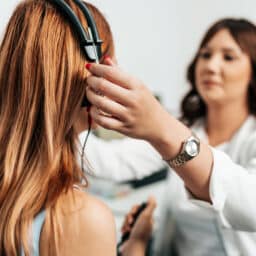
Nearly everyone has experienced muffled hearing at least once in their life. When this muffled hearing is temporary, it is not always a cause for concern. However, some instances of muffled hearing are permanent—known as permanent hearing loss. Knowing how to differentiate between temporary and permanent hearing loss is essential in ensuring you’re on the…
How to Combat Listening Fatigue: Tips for People with Hearing Loss
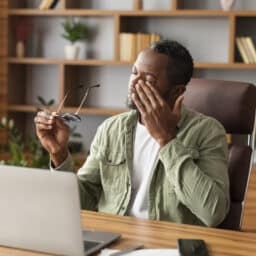
Listening fatigue, also known as ‘auditory fatigue’ or ‘mental fatigue,’ results from ongoing strenuous efforts to listen with hearing loss. For individuals with hearing loss, the brain has to work much harder to process sounds and speech, especially in the presence of distracting background noise. The constant strain of understanding those around you leads to…
Causes and Symptom Management of Somatic Tinnitus

Tinnitus is the perception of sound, usually a ringing or buzzing noise, without an external source or stimulus. Tinnitus affects approximately 10%-17% of the global population, and somatic tinnitus accounts for an estimated 65% of those cases. The somatosensory system is responsible for perceiving touch pressure, pain and temperature. It serves three primary functions: perception…
Tools to Improve Your Life With Tinnitus

Tinnitus causes a ringing or buzzing in the ears that cannot be heard from the outside. Affecting more than 50 million people in the United States, severe tinnitus can cause stress and anxiety, negatively impact your sleep and take a toll on your relationships. Tinnitus can be caused by loud noise exposure, ototoxic medication (medication…
What Every Day Sounds Can Harm Your Hearing?

October is both Audiology Awareness Month and National Protect Your Hearing Month. These campaigns are aimed at raising awareness about hearing health and learning how to prevent noise-induced hearing loss. While many causes of hearing loss are out of our control, exposure to loud noise is often something we can take steps to avoid or…
Can Sound Enrichment Therapy Help Manage Your Tinnitus?
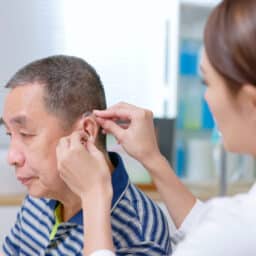
Tinnitus is a ringing, buzzing, roaring or clicking noise in the ears that cannot be heard from the outside. Affecting approximately 10% of the U.S. population, tinnitus can range from mildly bothersome to severe. Severe cases can interrupt your sleep and cause headaches, irritability and stress. While there is no known cure for tinnitus, several…
How Can a Concussion Affect Your Ability to Process Sound?

A concussion is a traumatic brain injury caused by a blow, bump or jolt to the head or by damage to the body that causes sudden movement to the head. Common symptoms of a concussion may include but are not limited to: While many concussions are considered mild, moderate or severe cases may exhibit trouble…
Three Reasons Hearing Loss Causes You to Isolate From Others

It’s not uncommon for people with hearing loss to begin to isolate themselves from the world around them. Unfortunately, doing so can worsen their mental and physical health and put them at a greater risk for: Let’s look at three common reasons hearing loss can lead to isolation. Crowded Places Make It Hard to Hear…
How to Prevent Hearing Loss in Young Adults
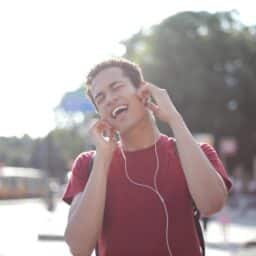
It’s common to associate hearing loss with older age. While it’s true that your risk of hearing loss increases as you get older, people of any age can develop the condition. In fact, research has found that a significant number of young adults have noise-induced hearing loss. Young Adults at Risk of Noise-Induced Hearing Loss…
What’s The Link Between Hearing and The Brain?

Untreated hearing loss can have many negative consequences. Research has shown that it can affect the way your brain works and impact cognition. Research on How Hearing Loss Affects Your Brain Multiple studies have found a connection between hearing loss and brain function. According to The National Library of Medicine, “There is ample evidence linking…
Here’s How Untreated Hearing Loss May Affect Your Memory

Untreated hearing loss can have a variety of negative consequences, including affecting your memory. Research on Hearing Loss and Memory Multiple studies have found a connection between hearing loss and memory problems, as well as cognitive decline. Three Reasons Hearing Loss Can Worsen Memory Use Hearing Aids to Help Your Memory Hearing aids enhance your…
Untreated Hearing Loss May Leave You More Vulnerable to Falls

Leaving your hearing loss untreated can have several other negative consequences on your health. Research indicates that it may make you more vulnerable to falls. Study Shows Even Mild Hearing Loss Can Increase Fall Risk Though you might assume that only severe cases of hearing loss would be able to affect balance, research has…
Here’s How You Can Make the Most of Video Games with Hearing Loss

The National Institute on Deafness and Other Communication Disorders report that “One in eight people in the United States (13 percent, or 30 million) aged 12 years or older has hearing loss in both ears, based on standard hearing examinations.” If you have hearing loss, it can affect many aspects of your life. Believe it…
What To Do if You’re Worried You Have Hearing Loss

Though some people have hearing issues from birth, for most of us, hearing loss can sneak up gradually. It may be because of age or chronic exposure to loud noise or some combination of different factors. Let’s go over some of the early signs of hearing loss, as well as what to do if you’re…
Studies Find Hearing & Vision Impairments Linked to Increased Risk of Dementia

It’s common knowledge that the older you get, the more likely you will experience sensory impairment like hearing and vision loss. In fact, one in three people ages 65 to 74 has hearing loss, and for those 75 and older, the number jumps to one in two, reports the National Institute on Aging. In addition,…
Effects of Untreated Hearing Loss on Senior Citizens
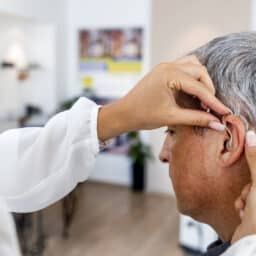
According to the National Institute on Aging, approximately one in three people ages 65 to 74 has hearing loss. For those ages 75 and up, this number jumps to one in two. But because hearing loss is a progressive condition, many people at Senior Action aren’t even aware they have it until it has progressed…
Learn About the History of the Hearing Aid for Audiology Awareness Month

Hearing aids make life for people with hearing loss so much easier. Whether they help you follow along during work meetings or to connect with your grandchildren over a stack of waffles at Jimmy’s Family Restaurant, hearing aids make it possible to hear the sounds that matter most. This Audiology Awareness Month, we wanted to…
Unusual Causes of Tinnitus
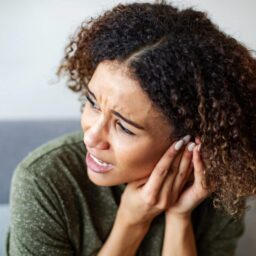
If you hear a ringing, roaring, hissing, whistling, buzzing or humming sound in the ear with no external source when out with friends at Jimmy’s Family Restaurant, this is known as tinnitus. While tinnitus can feel like an isolating experience, it’s actually quite common. According to the American Tinnitus Association, 25 million Americans experience some…
Injuries That Can Cause Hearing Loss

When most people think of the causes of hearing loss, old age and exposure to loud noise come to mind. But did you know that certain injuries can also cause trouble hearing at the Easley Farmers Market? We review some of the injuries that can cause hearing loss below. Traumatic Brain Injury (TBI) While the…
How to Support a Loved One with Hearing Loss Who’s in a Nursing Home

The most common cause of hearing loss is old age, usually due to a lifetime of noise exposure. In fact, according to one study, “It is estimated that 70% to 90% of elderly residents in long-term care facilities have some degree of hearing impairment.” Many of these residents with hearing loss wear hearing aids to…
Has Your Child’s Hearing Loss Been Misdiagnosed as a Learning Disability?

The CDC reports that approximately 15% of school-aged children ages 6 to 19 have a hearing loss of at least 16 dB in one or both ears. With the right interventions, children with hearing loss can be just as successful in school as their peers who have normal hearing. However, left undiagnosed and untreated, hearing…
What Jobs Are Most at Risk for Hearing Loss?

The highest risk of noise-induced hearing loss (NIHL) is related to exposures in the workplace, which affects about 7% of the population. Below we review how loud sounds cause damage, which professions are most likely to experience this type of hearing loss and how you can protect yourself if you work in a noisy field….
WHO Sets New Standard of Safe Listening

The World Health Organization (WHO) directs international health within the United Nations and leads partners in global health responses. In preparation for World Hearing Day 2022, the WHO has released a new international standard for safe listening practices at venues and events. These standards are aligned with the theme of this year’s World Health Day:…
Is There a Connection Between Hearing Loss and Diabetes?

Research has shown a link between hearing loss and diabetes. One study showed that people with diabetes are twice as likely to experience hearing loss as people without the condition. The same study showed that people who were classified as prediabetic had a 30% higher rate of hearing loss compared to those with normal blood…
Tips for Dealing with Hearing Loss at Work

According to the Centers for Disease Control and Prevention (CDC), approximately 12% of the U.S. working population has hearing difficulty. If you are affected by hearing loss and are in the workforce, you’re entitled to accommodations, per the Americans with Disabilities Act (ADA). We review some of the accommodations that may benefit you below. Request…
